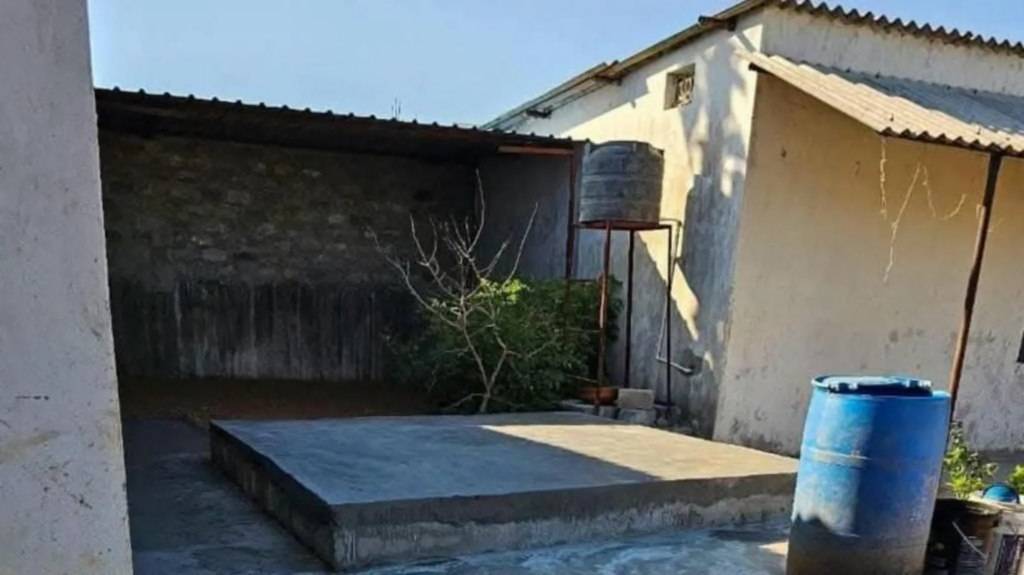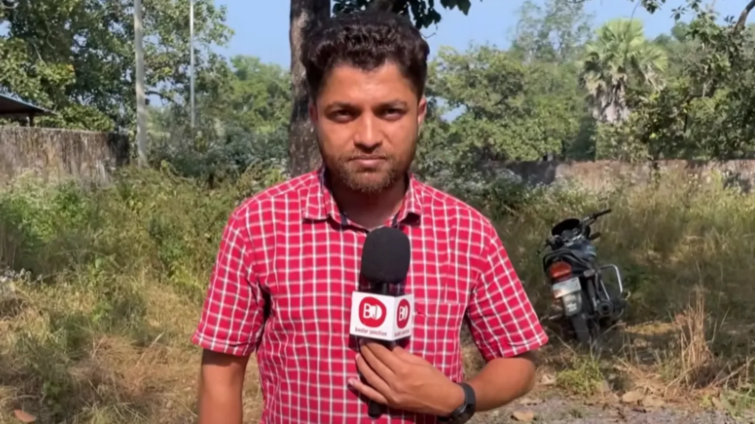The body of an Indian journalist who had reported on alleged corruption in the country has been found in a septic tank in Chhattisgarh state.
Mukesh Chandrakar, 32, went missing on New Year's Day and his family registered a complaint with the police.
His body was found on Friday in the compound of a road construction contractor in the Bijapur town area after officers tracked his mobile phone.
Three people have been arrested in connection with his death, reportedly including two of his relatives. A media watchdog has demanded a thorough investigation.
Police in the Bijapur district did not find anything during an initial visit to the compound on 2 January.
"However, after further inspection on 3 January, we discovered Mukesh's body in the newly floored septic tank near the badminton court," a senior police officer said, referring to the fact concrete slabs had been placed on top of the tank.
Police said his body showed severe injuries consistent with a blunt-force attack.
Mr Chandrakar, a freelance journalist, had reported widely on alleged corruption in public construction projects.
He also ran a popular YouTube channel, Bastar Junction.

Following his death, the Press Council of India called for a report "on the facts of the case" from the state's government.
The chief minister of the state described Mr Chandrakar's death as "heartbreaking".
In a post on X, he said a special investigation team had been formed to investigate the case.
It has been reported in Indian media that one of those under arrest over the journalist's death is his cousin.
One of the main suspects - compound owner Suresh Chandrakar, also a relative - is on the run.
Local journalists have held a protest demanding strict action against the alleged perpetrators.
Attacks on journalists reporting on corruption or environmental degradation is not uncommon in India.
In May 2022, Subhash Kumar Mahto, a freelance journalist known for his reporting on people involved in illegal sand mining, was fatally shot in the head by four unidentified men outside his home in Bihar.
Media watchdog Reporters Without Borders has said that an average of three or four journalists are killed in connection with their work in India every year, making it one of the world's most dangerous countries for the media.
Latest Stories
-
Cameron Duodu at 88: A life penned with purpose
5 minutes -
Opoku Agyemang’s private jet use: Be a man of principle and resign – Ntim Fordjour to Ablakwa
46 minutes -
NPP’s Adenta Kumi released from NIB custody
1 hour -
Surviving and Growing in Turbulent Times: The Strategic Role of Marketing
1 hour -
McTominay stunner helps Napoli win Serie A title
2 hours -
360 Africa and Ebenezer SHS unite in Dansoman to promote ‘Renewable Energy for All’
2 hours -
Old age inspired me to establish a hotel – KSM
2 hours -
Newsfile to discuss suspended CJ’s legal battle and Accra flood crisis this Saturday
3 hours -
Gifty Anti inspires young women to rise above challenges at TAF College’s 2025 Freelancers launch
3 hours -
Police restore calm in Adoagyiri after violent clashes between youth groups
3 hours -
Obstructionist behaviour must not be tolerated – Prof Kwesi Aning warns
3 hours -
Wontumi alleges intimidation and threats amid raid at his residence
3 hours -
GREDA urges pricing discipline as cedi strengthens against dollar
3 hours -
Ghana scales up fight against obstetric fistula with free surgeries in five hospitals
3 hours -
“We step in when communities need us” – Agro Crown Director on borehole commissioning in Ofosu
3 hours

